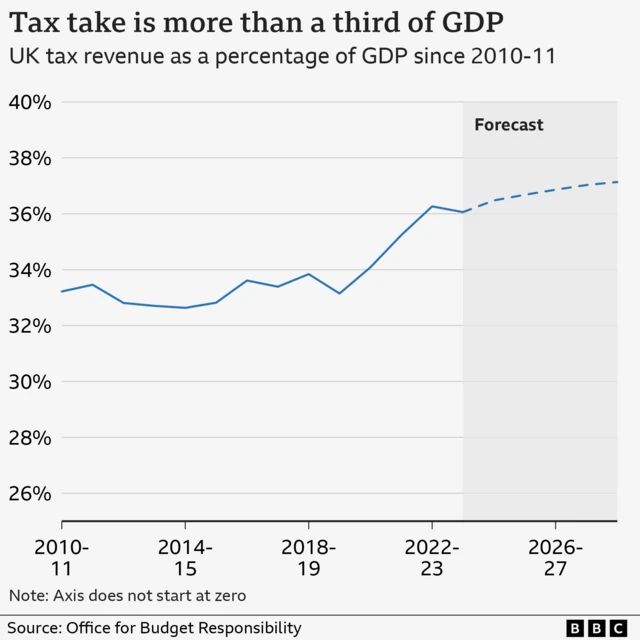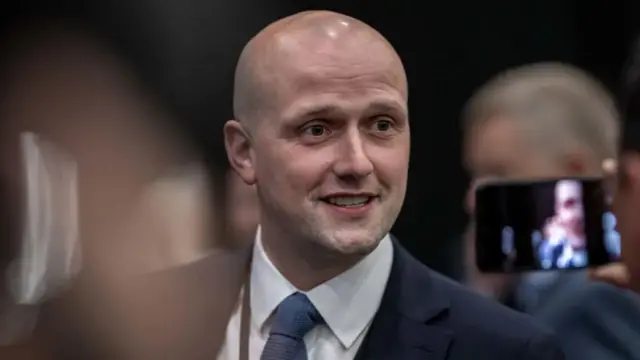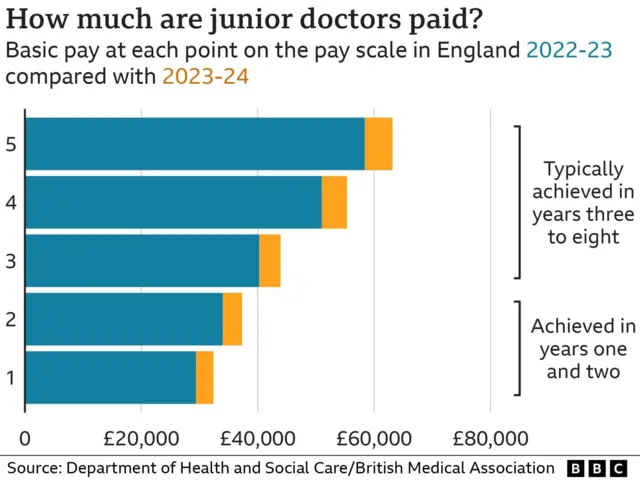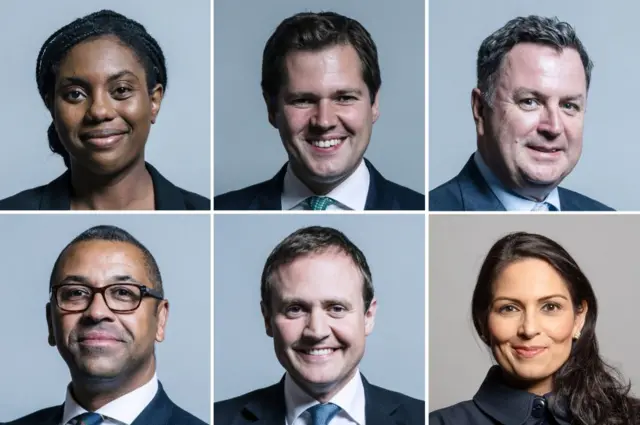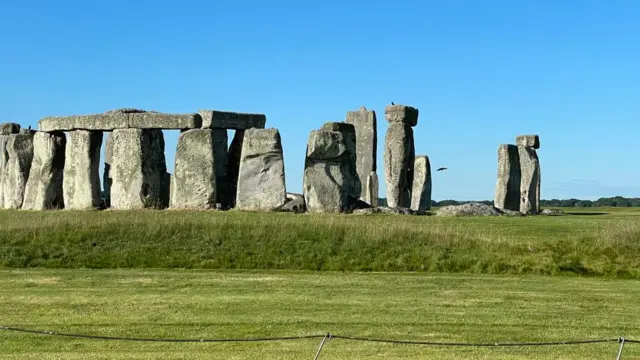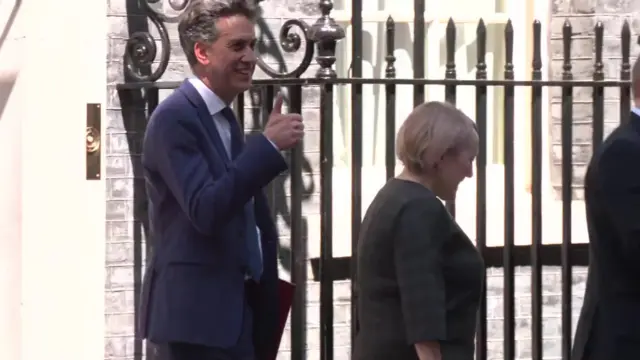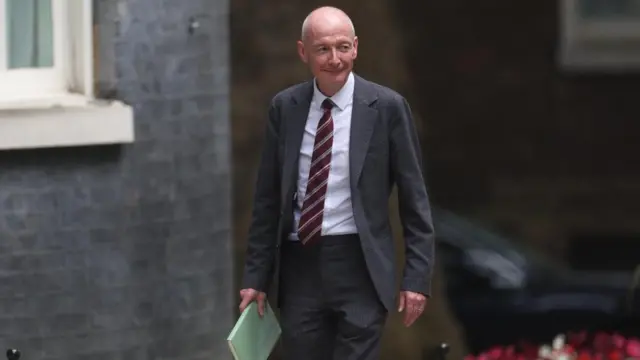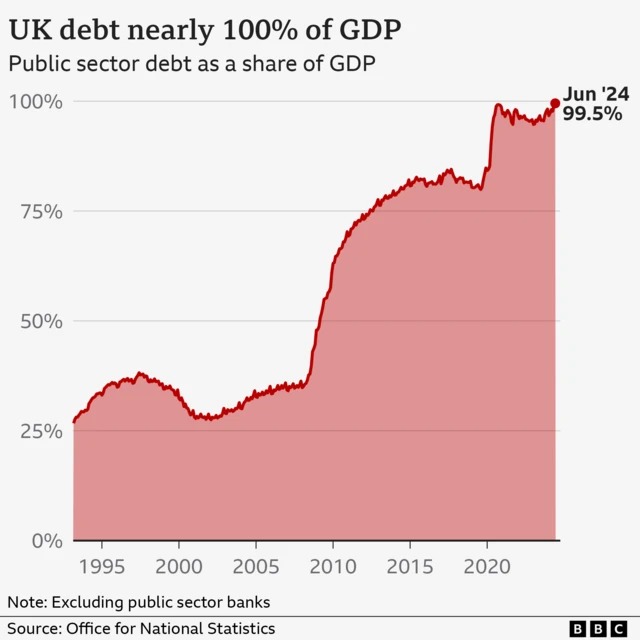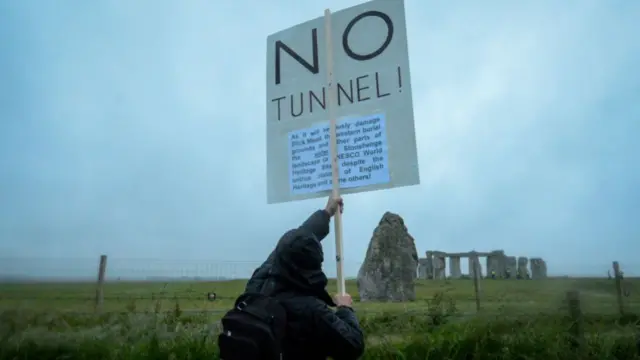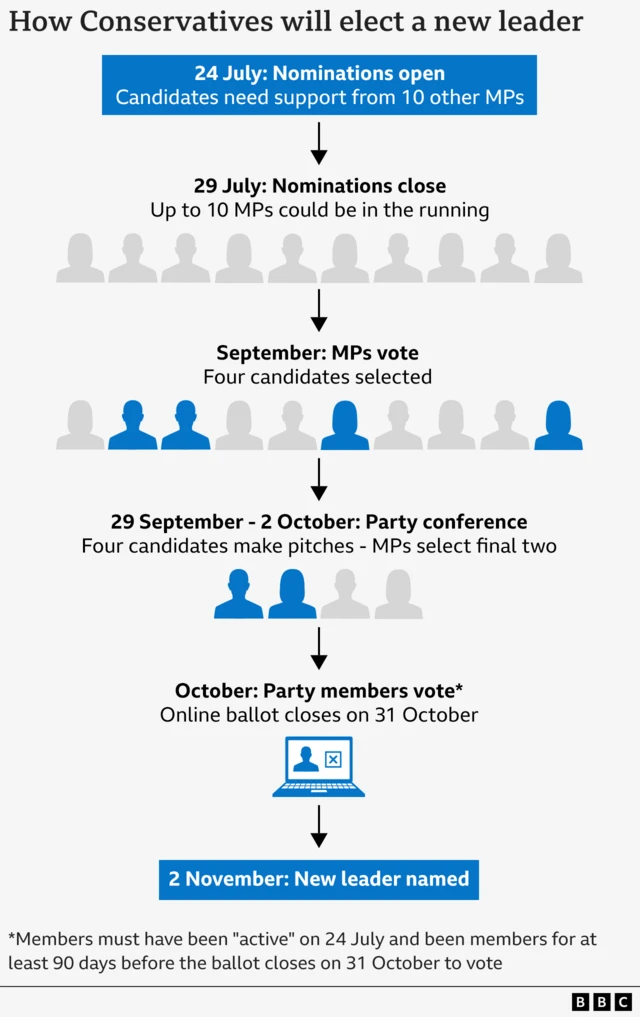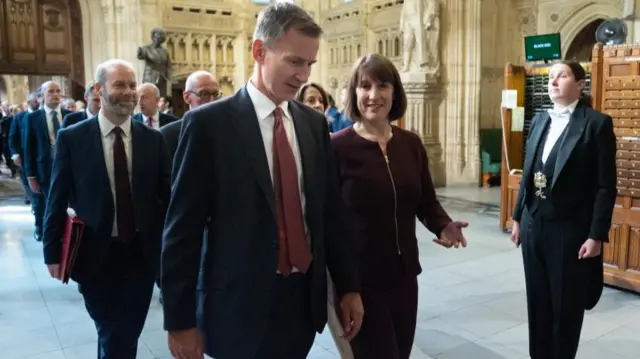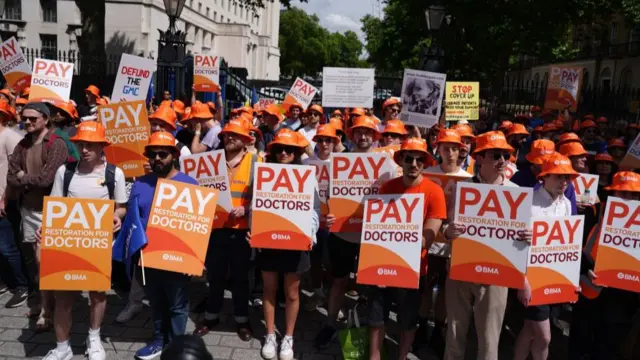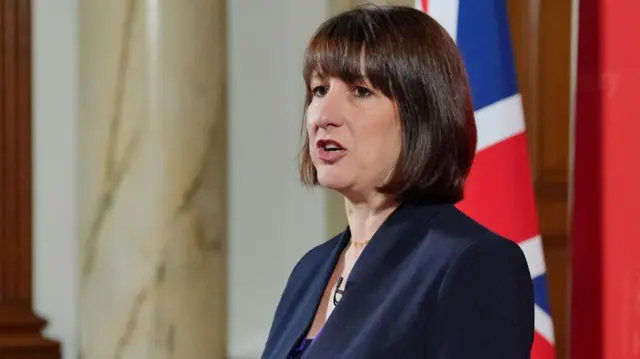Tax revenues already on the risepublished at 15:24 BST 29 July 2024
In the past 10 years, the tax take - which is the total amount of money a government collects - has been on the rise as a percentage of the UK's GDP (which means the overall size of the economy).
In the last ten years, it has gone up from under 34% to 36%. In the next five years, that measure is expected to reach a 70-year high.
Labour has pledged not to raise National Insurance, income tax or VAT so will need to find ways to fund its spending plans without pulling on those big levers which governments often rely on.
